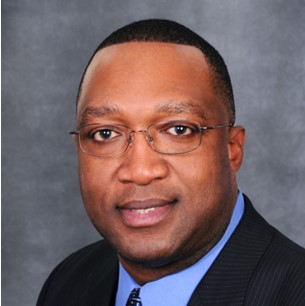As Dr. Shaun McKay knows, there is little question that the COVID-19 pandemic sparked drastic changes in various industries and countries. Among the fields COVID had the most impact on is education.
So, how are these changes from the pandemic expected to transform education and leadership moving forward?
From 2010 to 2019, Dr. McKay served as President of Suffolk County Community College. In this role, McKay boosted the numbers by 44% and increased the graduation success rate from 28-43%. During his time with Suffolk County Community College, McKay was also able to secure over $200 million in funding for 30 different projects and created over a dozen new academic plans for the largest community college in New York.
Dr. McKay now offers his insight to help other colleges and educators adapt to the changing demands for education and believes that the pandemic offers an immense opportunity for schools and community leaders.
Dr. Shaun McKay: Strengthening Fellowship and Community
Both cultural and generational changes affect education, notes Dr. McKay. “It’s not me,” he states, “It’s us. It’s you. It’s them.”
Education leaders have to see the process as a team effort. Educators are not just extending their knowledge to students, and students are not just absorbing new information. There is a give-and-take element that should come with education.
“Leadership is ‘follow-ship.’ I’m following you as you experience the things you do,” says McKay. “I try to empower the people around me to be better than I am. That way, they can then utilize the skills to push it out into the community. What you learn doesn’t belong to you. You are part of the process of transformation.”
If an educator can’t listen and isn’t able to follow, they aren’t going to be good at fulfilling that role.
Creating Equity
The frightening reality is that education can also create unqualified individuals. Education needs to maintain rigorous standards without alienating people. “It’s a fine line,” says Dr. Shaun McKay. “We don’t all start at the same place.”
Affordability is an issue, as well as access and having a voice at the table. Some people who face disenfranchisement the most include the elderly, the homeless, people desperate to cross borders, those held back by implicit bias, etc.
Educators have to ask: How do we get them out of their situation? How do we get them to believe in themselves?
And, this solution isn’t a simple one. Dr. McKay says it will require mental health services, justice, and education.
Dr. McKay’s career has been focused primarily on the education aspect of this solution. “Through education comes transformation and economic empowerment,” he says. “There are a lot of voices that are not being heard.”
Setting Up Students for Success
Being engaged and giving back is a critical part of what makes an educator effective. But understanding the end goal is also a crucial part of being a great educator.
Shaun McKay has always believed that the individual has to be empowered to do more and to act outside of themselves. Ideas shouldn’t stay on just one level, but should be encouraged to grow and become an institutional change that impacts and benefits everyone.
“We tend to be too corporate in what we do and how we think,” says Dr. McKay. “We spend a lot of our efforts on trying to approach education as a kind of business and not as a tool of empowerment. The best schools are able to consider the good of the students and include those who are often left out.”
“Education is the pathway,” says Dr. McKay. “What are we educating them for? How are we finding people that can’t add to the discussion? Find people and take them to where we believe they should be, beyond where they see themselves. Start by empowering within—start with the people you’ve already got. Branch out to the community and watch the ripple effect.”
New Technology Format
The pandemic has highlighted and heightened the significant inequalities that hold back certain groups, mainly due to a heavy dependence on new technology formats. Access to tablets, hotspots, online learning, and support systems is just one example of things that have become unfair barriers to education.
As Dr. McKay knows, educators have to navigate this hurdle so it doesn’t fall squarely on the backs of certain students.
Dr. McKay understands that this will continue to be a challenge for educators because things never stop evolving.
“Learning is infinite,” says Dr. McKay. “It is not teaching that is infinite; you are going to have to remodel. You are going to have to change the modality. We are all learners. Part of what we do is to continue to enhance what we’ve learned before. That’s your baseline. You can’t stay on that because everybody will pass you. Look at technology. Technology today is not what it was years ago. How we speak to each other is not how it was years ago. Globalization, healthcare—it’s not what it was 10 or 20 years ago, build upon what you’ve got right now—don’t stay there.”
This is a Contributor Post. Opinions expressed here are opinions of the Contributor. Influencive does not endorse or review brands mentioned; does not and cannot investigate relationships with brands, products, and people mentioned and is up to the Contributor to disclose. Contributors, amongst other accounts and articles may be professional fee-based.

